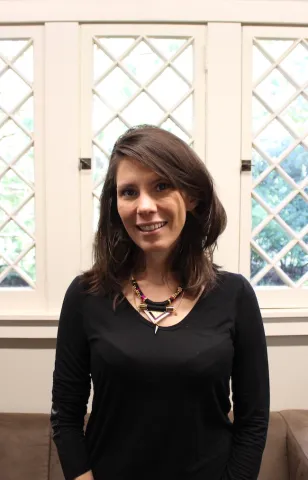
Michelle Reddy

I first developed an interest in education and social transformation as an undergraduate at Boston College, where I worked on the University of the Middle East Project, and subsequently pursued an M.A. in higher education administration at Columbia University. After receiving the Zankel Fellowship, I then pursued an Ed.M in international education development from Columbia University. During this time, I worked for the City University of New York. While at Columbia, I became increasingly interested in Sub-Saharan Africa, and subsequently worked at UNESCO and the Earth Institute, and then upon graduating, at the UN Office for West Africa in Dakar, Senegal. Given my background in both higher education and international organizations, I received an excellent opportunity to join the team that launched the Paris School of International Affairs at Sciences Po, in Paris, where I remained for four years as Assistant Dean, and taught a course on International Actors in Africa to undergraduates.
I have had a lot of freedom at Stanford to pursue my own interests and to take courses across departments, which was particularly beneficial for me after having had a professional career before I began my PhD. As the ICE program encourages students to pursue a disciplinary area, I have also received an M.A. in Political Science. In addition, I have benefited enormously from the numerous research centers on campus, including the Center for African Studies, the Center for Latin American Studies, the Lemann Center, and the Center for Philanthropy and Civil Society. During my first and second years, I worked on a consultancy for the Expert Group for Aid Studies, with Professor Joel Samoff (Center for African Studies), conducting an evaluation synthesis of aid to education. Subsequently, I worked with Professor Jim Fishkin (Center for Deliberative Democracy) on a deliberative polling project in Senegal as part of the Resilient Africa Network. I have also been working on my own project on restrictions on foreign funding to NGOs, alongside Professor Tricia Bromley (ICE). Finally, I have been a fellow with the Center for International Conflict and Negotiation since 2016.
Before coming to Stanford, I never imagined that I would come to enjoy quantitative research methods. The excellent and supportive learning environment at the GSE enabled me to try new things, like learning coding and taking many quantitative methods courses. As a mixed-methods researcher, I focus on organizational change and social transformation in developing countries, looking specifically at the development of the non-profit sector. In particular, I examine the expansion and influence of non-state actors, such as NGOs and foundations, during crises and social transformation.
I received the Foreign Language and Area Studies (FLAS) Fellowship from 2016-2017, and the Kathryn Davis Peace Fellowship in 2016 to study at the Middlebury Language School, leading me to have four working languages. I am always able to reconnect with colleagues around the world through the generous conference funding opportunities at the GSE.
I have found that the students in the ICE program are very supportive of each other, and am grateful for the wisdom shared by my peers further along their PhD trajectory.
